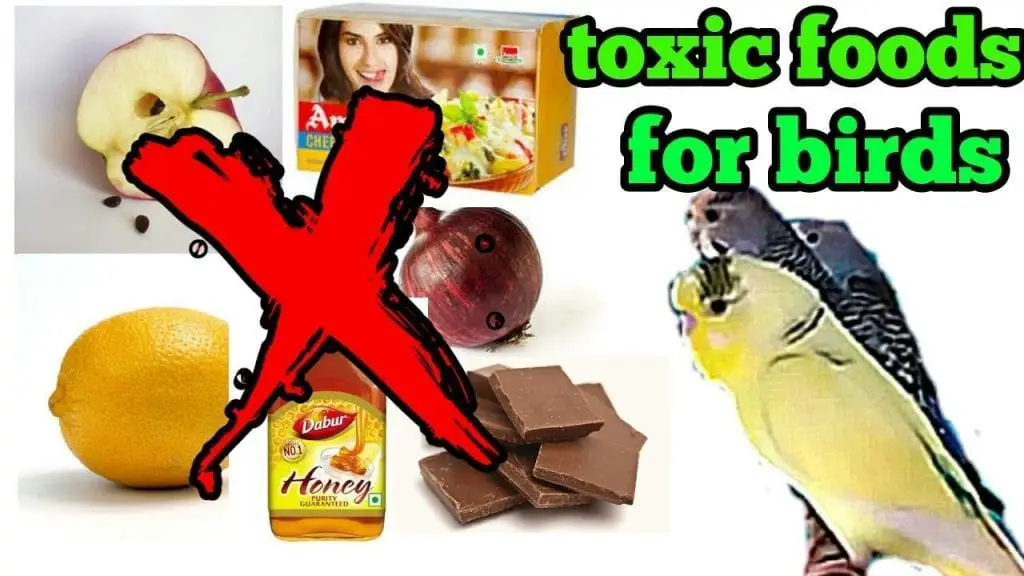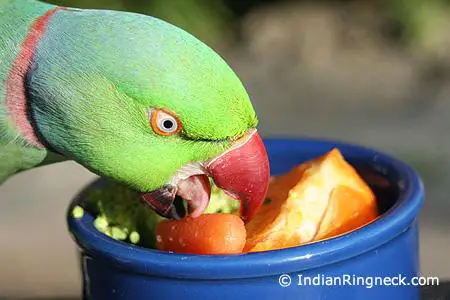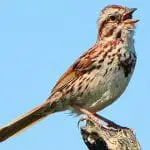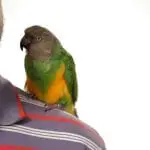The secret to your bird’s long and happy life is by feeding it nutritious food. When your bird sticks to a proper diet, it also keeps it immune from contracting different diseases and is able to sustain an active and healthy lifestyle. Clear enough, birds do not eat like humans, and there are certain foods that they are restricted from eating.
Similarly, our feathered friends need to eat fruits too besides the pellets we usually find at pet stores. Although fruit is easy to prepare for consumption by a person, birds do not exactly do the same procedure, especially around the seeds or pits of the fruit which could choke or block their digestive tract. Here is a quick guide on how you can add a fresh touch to your birds’ meals minus the risks.
Organic Fruits Are the Best
Fruits are the best when you give them organic. Birds are sensitive to pesticides than commercially bought fruit might contain. Canned fruit is okay but might be high in sugar or sodium that could be dangerous to your bird’s health. Before slicing the fruit, make sure to wash it thoroughly.
Know What Your Bird Likes
Know which fruits your bird enjoys eating the most is important. Birds do not become a fan of fruit overnight, not unless you own one that will eat anything you leave in its dish. Most birds are used to eating pellets, which have been scientifically designed to provide the nutrients they need. Only sticking to a pellet-based diet, however, is also unhealthy, and fruits help balance it out.
Each species can only eat specific fruits like how pellets are produced too. Most birds can be classified as omnivores (eat seeds, fruit, insects, and invertebrates), but there are other classifications such as florivores and frugivores that eat fruit as well (except for the living things). In general, the list below includes fruits that your pet bird will surely love:
- Apples and pears
- Berries (like strawberries, cranberries, blueberries, and raspberries)
- Apricot, nectarine, peach, cherry
- Mango, papaya, kiwi, pineapple and
- Melon (including rockmelons, honeydew melons, and watermelon)
General Tips When Giving Fruits to Your Birds
- You can try introducing fruit to them by offering a piece every day and incorporating it with their feeds. Feeding your bird in your palm works, too, if they prefer to eat that way. If they avoid the fruit at first, keep trying again till they start nibbling.

Your feathered friend’s food group by the Spruce retrieved from https://www.thesprucepets.com/safe-fruits-for-birds-390622
- Citrus fruits can only be consumed in small amounts because birds are sensitive to acidic fruits.
- Do not leave a whole fruit for them. This applies to fruits that are not “berry” sized and have bigger seeds (except cherries). Serve the fruit sliced but not necessarily mushed or grated once they start to eat fruit more (serving it in small bite-size portions is a good start for them). You also don’t want a whole fruit to go to waste if you know they cannot finish the entire thing in the first place. Serving the whole fruit at once also means that it will spoil faster once you leave it in the cage.
- Always make sure to take out the pit and seeds of bigger fruit as birds might ingest them too. This is because fruits like apples, pears, and cherries contain a cyanide compound in their seeds that are dangerous to your bird’s health.
- Fruits like grapes and strawberries do not need any pitting unless you’re up for a challenge. So think of it as if you wouldn’t eat the seed, your bird shouldn’t either. Make sure to discard any leftovers as spoiled food is not safe for them as well and will also attract pests.
Make Meal Time Fun!
Food does not always have to be served on a dish. Make fruit appetizing by getting creative with its presentation. Try introducing them to fruit as a treat whenever you play together. Add some fruit here and there in the cage by hanging it, inserting it through the bars or in their toys. This way, they get to be healthy through activity and feeding, providing physical fitness, mental stimulation, and a full tummy all in one go.
Video Source: Youtube
It Isn’t All About Fruit
Once your bird starts to eat fruit more, make sure to still feed it its prescribed pellets as they are already packed with all the vitamins and minerals birdie will need and may not be able to get in just one sitting of a blueberry. Ask your avian veterinarian as to what ratio of fruit and pellets should your bird be eating for maximum health as each kind of bird has its own ratio of foods to consume.
Toxic Foods Birds Should Never Eat
Birds are social eaters in which those in the wild feed in flocks to enjoy their meal. Pet birds like to share their mealtime with flock-mates – either their human caretakers or other species of birds in the house. It’s one way to socialize with feathered companions. However, some foods offered to pet birds can be potentially toxic.

Here are the common foods toxic to birds:
1. Avocado
Avocados are vegetables that are good for birds. However, the leaves contain persin, which is a fatty acid-like substance, and when it’s ingested by birds may cause respiratory difficulty, heart damage, weakness, and sudden death. Given the possible consequences of avocados, it is best to avoid feeding avocado and foods containing avocado to your bids, such as guacamole.
2. Apple Seeds and Fruit Pits
Most fruits are safe and healthy for birds to eat in small amounts. However, there are certain fruits that contain seeds (such as pears and apples) and pits (such as peaches, nectarines, cherries, apricots, and plums). These fruits shouldn’t be given to pet birds without removing the pits and seeds first because they contain trace amounts of a type of cardiac-toxic cyanide compound. Removing pits and seeds and pits will make fruits safe for birds to eat. Generally, the seeds from grapes, squash, pumpkins, citrus fruits, mango, pomegranate, tomatoes, melons, and berries, are safe for birds to consume, and you can feed them to your bird pet without worry.
3. Garlic and Onions
Garlic and onions are spicy veggies that have heart and other health benefits in humans, but not in birds. Onions actually contain sulfur compounds. When chewed by birds, it can irritate their oral lining as well as their esophagus or crop. It may cause ulcers and can also induce rupture of RBC or red blood cells, which may lead to anemia. On the other hand, garlic contains allicin. It’s another chemical that can lead to weakness and anemia in birds when ingested. You can still spice up your bird’s diet with a small piece of hot pepper that is rich in vitamin A instead of giving garlic and onions.
Conclusion
Pay attention if there have been any changes as to how your bird eats since it began munching on fruit. You might also notice that its droppings have become watery. There is no need to worry, though, as fruits have high water content, so bird droppings will naturally have more urine when they eat fruit. Do not overfeed your bird with fruits either. As mentioned earlier, stick to the recommended ratio by your vet or give fruits as a healthy snack. Moreover, birds can eat fruit, but it is an owner’s responsibility to make sure they are eating right and is safe for their pet to consume. Always seek advice from your avian veterinarian to know what suits your bird best so that they get the most out of their food and how you can give the best care.


